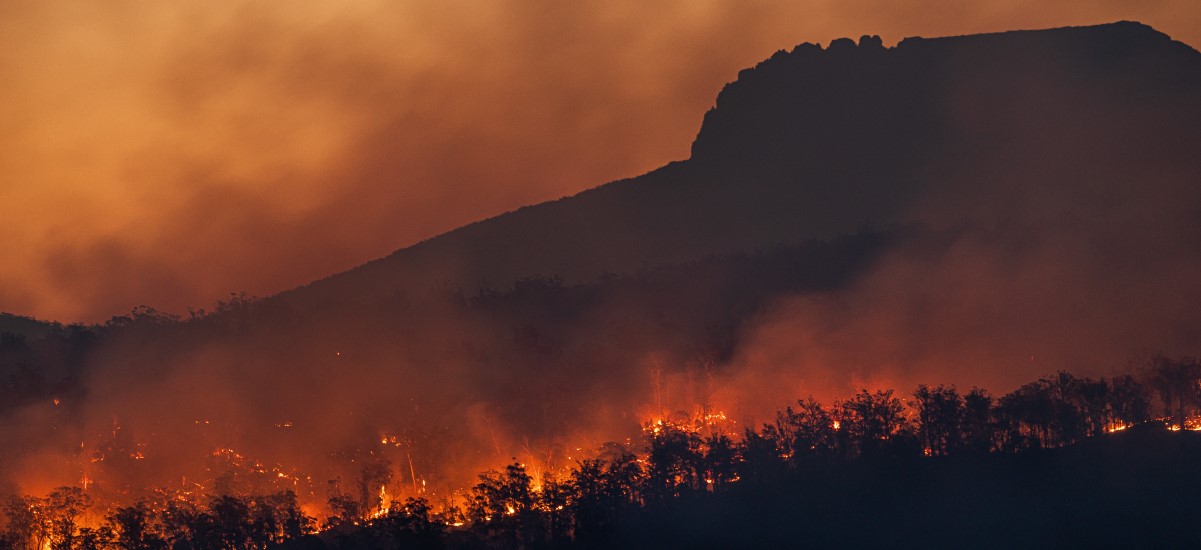Effects of a natural disaster on consumers’ financial distress

Photo by Matt Palmer (external link, opens in new window) on Unsplash (external link, opens in new window)
Global climate change is increasing the frequency and severity of natural disasters. Indeed, 2023 is estimated to be Canada’s worst wildfire season on record. We use detailed consumer credit data to investigate the impact of the 2016 Fort McMurray Wildfire, the costliest wildfire disaster in Canadian history, on consumers’ financial stress.
We focus on the arrears of insured mortgages because of their important implications for financial institutions and insurers’ business risk and relevant management practices. Using detailed monthly consumer credit data from 2014 to 2018, we categorized individuals into two groups based on whether they lived in (1) severely damaged areas or (2) less damaged areas and analyzed the economic effects of wildfires on these groups separately.
We find that wildfires have a substantial impact on mortgage delinquencies. In severely damaged areas, we estimated that the doubling of delinquencies (from 0.6% to 1.2%) almost entirely to the wildfire effect. Putting this number into context, mortgage arrears in Alberta during the 2008-2010 Great Recession only rose by 0.67%. Our estimates show that the financial distress of affected individuals devastated by wildfires is comparable to that of the Great Recession. However, this increase was temporary and quickly dissipated between 12 and 18 months after the event. In contrast, we find minor and statistically insignificant effects in areas with less damage, with these impacts dissipating after only three months.
Our findings highlight the need to account for climate risk in consumers’ lending decisions, as there may be spillovers to other finance and insurance industry stakeholders. Spillovers can appear in terms of an increase in the financial burden due to the loss of use, delay in insurance settlements, or disruption in income streams. It is incumbent on the finance and insurance to understand and manage their exposure to these risks. Our findings support recent research that suggests the need to account for climate risk in the pricing of assets and bonds.
Potential changes in pricing may have long-lasting effects on the Canadian housing finance system because the public securitization of insured mortgages provides a cost-effective supply of funding to lenders, supporting competition in the mortgage market. This study also highlights the need for preparedness for natural disasters, which may be in the form of debt forbearance or debt-relief programs from the finance industry, or disaster relief from the public sector. To learn more, see the following:
To learn more, see the following:
Anson T.Y. Ho, Kim P. Huynh, David T. Jacho-Chávez & Geneviève Vallée, (2023). We didn’t start the fire: Effects of a natural disaster on consumers’ financial distress. Journal of Environmental Economics and Management, 119, 102790. DOI: 10.1016/j.jeem.2023.102790 (external link, opens in new window)
Financial Post Down to Business podcast (Episode 198): Wildfire devastation ripples through whole economy (external link, opens in new window)
